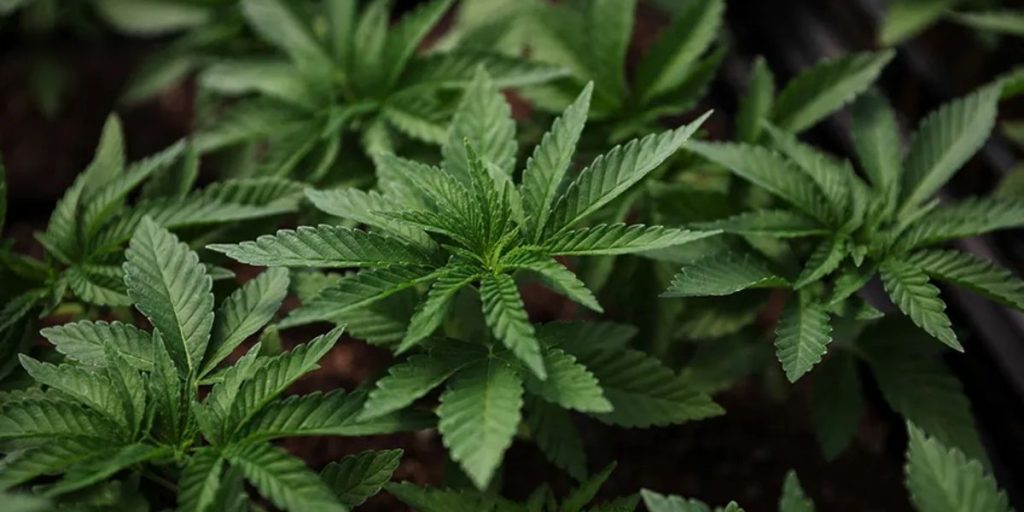The Minnesota House voted Thursday to expedite the process of establishing cannabis dispensaries by allowing them to apply for operating licenses in advance.
On a 69-62 vote, lawmakers authorized the office to begin issuing license pre-approvals as early as this summer. Supporters claim it would allow them to get finance, rent actual estate, and take other steps to get up and running. They would still be prohibited from commercially growing or selling marijuana itself.
“A number of provisions in this bill are designed to expedite the process of setting up a good legitimate marketplace for cannabis to displace the illicit marketplace that’s out there,” said the bill’s sponsor, Rep. Zack Stephenson, DFL-Coon Rapids.
The measure also would delegate enforcement authority over hemp-derived consumable items and medical marijuana to the Office of Cannabis Management. Those functions are currently handled by the Department of Health. Many of the bill’s proposals came from the newly established body in charge of the marijuana market.
The legal changes come less than a year after lawmakers agreed to allow adults over 21 to possess and use limited amounts of cannabis, as well as grow up to eight plants at home.

While edible hemp-derived THC goods such as candies and seltzers have been legal since 2022, the recreational cannabis law did not immediately allow for the establishment of full-fledged marijuana businesses.
A couple of Native American tribes have operated dispensaries on their reservations under sovereign authority, and more are expected to follow suit soon, but other prospective dispensary owners and commercial cultivators have had to wait for the state’s approval to begin operations.
In less than a year, the state hopes to see a greater range of cannabis stores open. Growers and distributors must first obtain a state license.
The state seeks to prioritize social equity applicants from minority communities or those who have been disproportionately disadvantaged by the enforcement of marijuana-related criminal legislation.
Some Republicans expressed concerns about a change to the license eligibility system that would eliminate a completely merit-based selection procedure for determining who gets licensed and instead implement a lottery if there are more qualified applicants than available licenses.
“This bill does some good, but it doesn’t fix much of what’s wrong with the cannabis bill,” said Rep. Nolan West, R-Blaine. “It does a triple backflip handstand to try and shoehorn ideological positions that are not about a safe and functioning marketplace.”
West aimed to shift the prerequisites for obtaining a license from the lottery system to the merit-based approach.
Stephenson and other MPs stated that the existing law will incorporate a lottery. However, the modification would modify the process for being entered into the pre-application lottery.
“The difference here between current law and the bill is moving from a more subjective scoring system under current law, to a more objective sort of binary yes-no choice under this bill,” Stephenson said in a statement. “And that’s designed to make things smoother, clearer, less subject to litigation and have it happen faster.”
In other states, selection processes based exclusively on merit have resulted in lawsuits, impeding license issuance.
However, a number of cannabis businesses warned that the policy would backfire. More than two dozen people wrote to MPs this week, urging them to oppose the proposal. They argue that ill-prepared enterprises may sneak through.
“The simplicity of the lottery system allows for exploitation through application flooding, submission of spurious applications, and the manipulation of social equity measures by predatory entities,” they said in a statement. “Such practices undermine genuine competition and social justice efforts.”
The chamber approved GOP amendments requiring the agency to examine the impact of cannabis on minors, establishing an 18-month timeframe for a licensed dispensary owner to utilize or lose their license, and establishing additional milestones for getting the market started.
The Senate intends to vote on a companion bill soon, paving the way for potential compromise negotiations in the final month of the session. Stephenson stated that he would be open to improvements to the lottery system as part of the conference committee debate.